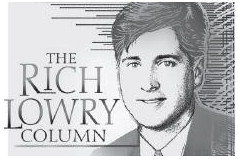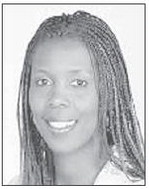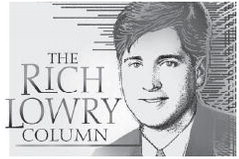Memphis is not about racism


There’s nothing white supremacy can’t do. It is supposedly so pervasive and powerful that it can cause Black men to sign up to serve as police officers in a majority Black city and severely beat a Black arrestee.
It is to the contemporary left what capital was to Marx, sex was to Freud, and gravity was to Newton.
It is the King Charles head of American public life, a matter of obsession that comes up in debates and contexts where it has no possible relevance.
An opinion piece at CNN by former Obama official Van Jones was headlined, “The police who killed Tyre Nichols were Black. But they might still have been driven by racism.”
A piece at The New York Times on Memphis related the view that it “is the system and the tactics that foster racism and violence,” not “the specific racial identities of officers.”
This argument gets points for novelty but none for plausibility. The Memphis officers who brutalized Tyre Nichols may be guilty of many things — incompetence, malice, criminal wrongdoing — but white supremacy is unlikely to be one of them.
Presumably these officers don’t all hate their parents, children, neighbors, and colleagues as unworthy, racially inferior people who deserve no protection under our laws.
Maybe it’s only as police officers that these men become unwitting tools of white supremacy? This makes no sense, either. The Atlantic noted in an article last year that FBI data showed Memphis to be the most violent metropolitan jurisdiction in the United States in 2020. According to The New York Times, Memphis had nearly 350 murders in 2021, when New York City — 13 times larger — had about 480.
Of course, these murders disproportionately affect young Black men. Isn’t this just how a white supremacist would like it — overwhelmingly Black neighborhoods under siege as Black men kill other Black men? Why would white supremacism want to interfere with this dynamic by deploying police units to try to quell the disorder?
Indeed, the false consciousness in Memphis must run deep. Cerelyn Davis, the city’s first African American woman police chief, created the just-disbanded special police unit implicated in the Nichols beating. Understandably, she thought it was very important to get a handle on rising homicides and dangerous reckless driving, but, unbeknownst to her, she was just serving the man. The obsession with white supremacy is perverse and insulting on several levels. It implies that if urban neighborhoods are under-policed and dangerous, that is their natural state, whereas if they are robustly policed to try to make them safer — a worthy project that tends to be supported by people of all races — that is somehow an inherently “white” initiative.
It suggests that good African American, Hispanic and Asian cops are dupes, puppets on the string of nefarious white people using them to perpetuate white rule. And, finally, if taken seriously, it would vitiate the agency of the cops involved in the abuse of Tyre Nichols. How can they fully take the blame if an ineradicable, unavoidable force was ultimately responsible for their behavior?
The explanation for what happened in Memphis is more continued from page
straightforward than any of this. Police are given considerable authority, and human beings — of all races and creeds, in all times and places — have a natural tendency to abuse authority unless constrained by institutions, norms and accountability.
If you are unwilling to believe that the cops in this case were self-loathing Black men, then their behavior becomes a function of poor training and supervision, abysmal decision- making, anger in the moment, free-floating cruelty, or some combination of these things.
The left elevates race above all the other factors that might play into a police encounter gone horribly wrong because the racial interpretation allows it to make a broader critique of American society and force wide-ranging political and social changes.
This is a very useful narrative, which is why it is loath to give it up even in an incident involving Black cops.
Rich Lowry is editor of the National Review.
Synd., Inc.






out of
Posted on